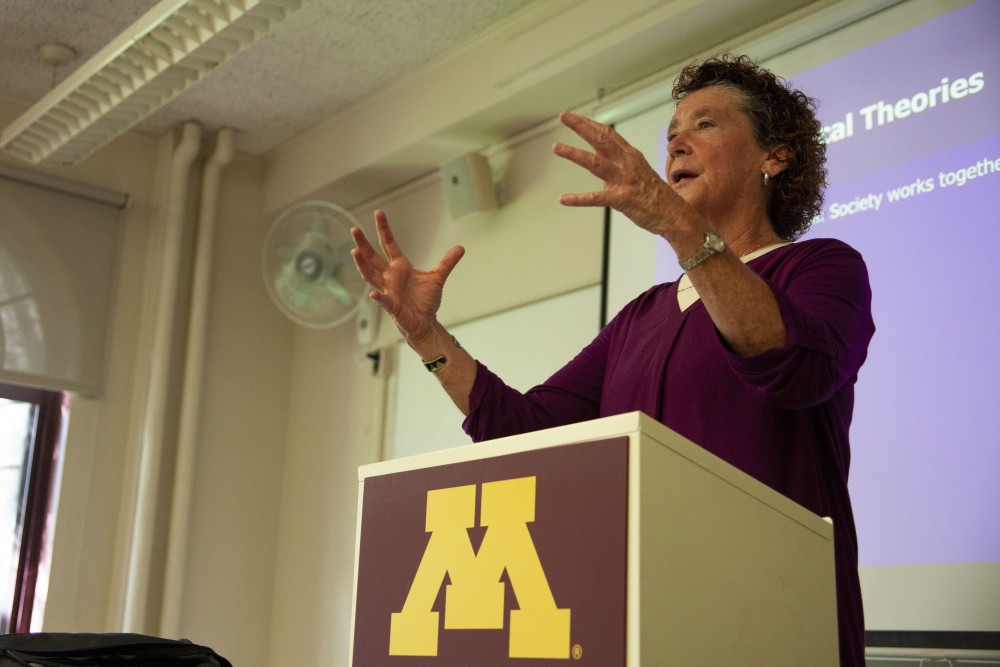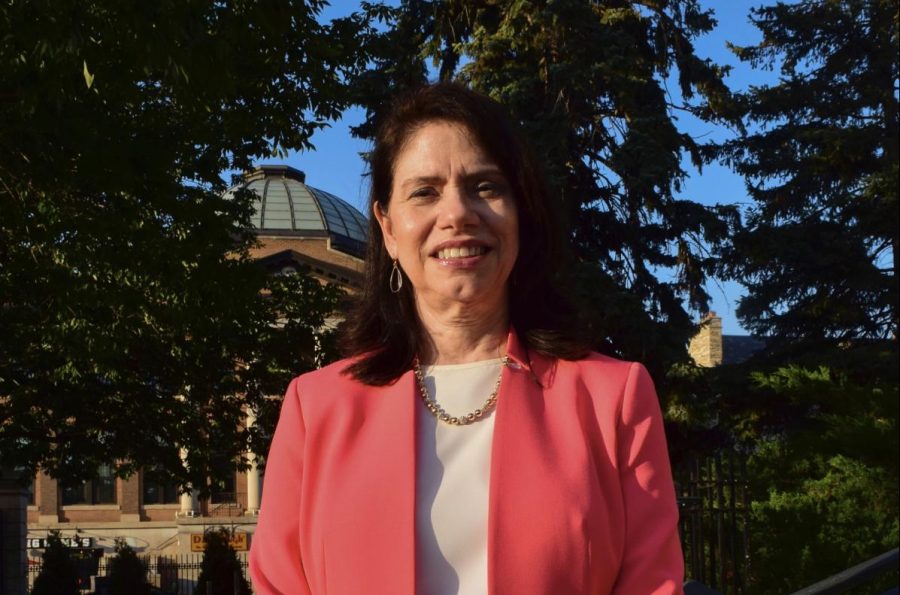Mary Jo Kane, founder and director of the Tucker Center and professor of sport sociology at the University of Minnesota, announced her retirement this month after teaching since 1989.
In 1993 Kane founded the Tucker Center for Research on Girls and Women in Sport, a research center in the University’s School of Kinesiology that examines how physical activity impacts the lives of girls and women. The Tucker Center was the first of its kind, Kane said, and it remains singular because of its wide scope of research.
“In terms of a full focus on girls and women in sport, from exercise science to the social sciences, housed in a major research university, we remain the only one,” Kane said.
Although Kane has been the Tucker Center’s director since its creation, she also conducted research, primarily about how female athletes are represented in the media.
Kane said many people, including those who agree with her opposition to sexualizing female athletes, have told her that “sex sells.” However, a study that Kane conducted found that audience members are often interested in promoting the athletic abilities of female athletes.
The Tucker Center has deliberately engaged with the media and the public, Kane said.
“We’re deeply committed to developing community partnerships so we can get our research out to the general public,” she said.
The Tucker Center collaborated with TPT to make three documentaries, one of which focused on Kane’s research and won a regional Emmy.
Kane has been a dedicated educator throughout the years, the School of Kinesiology’s Director Beth Lewis said.
“Not only has Dr. Kane been a strong researcher and advocate for girls and women in sport through founding and growing the Tucker Center to what it is today, she has been an incredible instructor at both the undergraduate and graduate level,” Lewis said.
Kane said she has great respect for her students and she learns as much from students as they learn from her.
“My teaching philosophy is that I try to create an environment where the class belongs to the students just as much as it belongs to me,” she said.
Colleagues of Kane’s expressed great respect for her and what she has done for the University.
Jonathan Sweet, the Tucker Center’s program associate who has worked with Kane for 25 years, said the network of academics and administrators that she built is vital to the Tucker Center.
“She has built those connections, and that is what makes up the Tucker Center, along with the research,” Sweet said.
After Kane’s retirement starts next May, Lewis said her absence will be felt by many people.
“Students, staff and faculty in the School of Kinesiology, myself included, are going to significantly miss Dr. Kane,” Lewis said.







